Neurological Disorders
Neurological disorders are just one of the many areas we treat when it comes to children with special needs. At Therapy Services of Greater New York, we offer a variety of treatment options for children suffering from neurological disorders. They are diseases that affect your brain, spine, and the nerves that are connecting them. With millions of people across the world feeling the effects of neurological disorders daily, it’s important to highlight some of the ways we can treat them. Working with your physician is one way to keep on top of it. When you schedule a visit with one of our staff members, you’ll be able to determine which form of sensory integration will work best for your child.
Common neurological disorders in children:
With over 600 different neurological disorders, it’s impossible to list them all. We can, however, list the most common disorders seen in children. They include:
Epilepsy
Movement disorders
Encephalitis
Tremors
Dystonia
Angelman syndrome
What causes a neurological disorder?
Discovering your child is suffering from a neurological disorder can be scary. The first question that will likely come to mind will be what caused it? Since your nervous system is such a complex system in your body, pinpointing the exact cause can be tricky. The following list includes a few of the causes of neurological disorders:
Infections
Genetics
Physical injury
Influences from your environment
Lifestyle-related
Your nutrition
What are the physical and emotional symptoms?
Neurological disorders are serious; that’s why you should be aware of some of the signs. They may appear differently depending on the type of disorder. They can show up as a physical or emotional symptom as a result. Physical symptoms are usually the most visible; such as:
Muscle weakness
Partial or complete loss of sensation
Seizures
Trouble reading and writing
Poor cognitive abilities
Decreased alertness
While the physical symptoms are something to keep an eye one, you also need to pay attention to your child's emotions. Emotional symptoms tend to be ignored if your child to be diagnosed. A few of the emotional symptoms you may want to mention to a doctor include:
Mood swings
Sudden outbursts
Depression
Delusions
How can we help?
Now that we’ve discussed the basics of neurological disorders, it’s time to talk about treatment. Depending on the type of disorder, a doctor could give you a straight yes or no if the disorder is curable. Some are just something your child will have to live with, unfortunately. But with proper medical attention, the outlook can still be positive. Therapies tend to be one of the more effective ways to help restore lost function and work through other issues caused by the disorder. At Therapy Services of Greater New York, we offer a fully-equipped sensory gym as well as a variety of specialized approaches to treatment. No matter what your child is going through, know that our primary goal is to provide the best quality of services customized to your child's needs.
Neurological disorders aren’t something to take lightly. Taking early action can only be beneficial for your child, as they may need to make certain lifestyle adjustments. So don’t wait, contact Therapy Services of Greater New York today!
